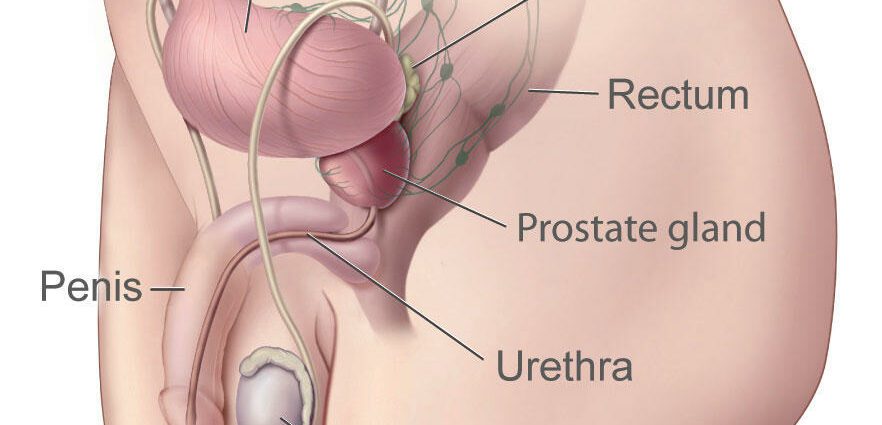Contents
Prostate problems
How are prostate problems characterized?
The prostate is a gland in the male genital system, which lies between the pubis and the rectum. It is the size of a walnut (or chestnut) and surrounds the urethra, the duct that carries urine from the bladder to the outside. The prostate participates in the production of seminal fluid, which makes up most of the sperm. Seminal vesicles also secrete some of the seminal fluid.
Several problems can affect the prostate. The most frequent are:
- prostatitis, or inflammation of the prostate
- benign prostatic hyperplasia or adenoma of the prostate, which is the enlargement of the prostate, which is very common in older men
- prostate cancer
These three diseases can manifest with similar symptoms, but do not have the same consequences or the same treatments. In the event of genitourinary disorders (pain, increased urge to urinate and frequency, difficulty urinating, etc.), it is therefore imperative to consult your doctor.
What are the causes of prostate problems?
Although other, rarer problems can affect the prostate, the most common are prostatitis, benign prostatic hypertrophy, and cancer.
Prostatitis is an inflammation of the prostate, often due to a bacterial infection. Most often, it is the E. Coli bacteria that is involved (more than 80% of cases).
The most common symptoms are:
- fever associated with chills,
- urinary symptoms such as burning when urinating
- too frequent urges to urinate
- pain in the pubic area, in the urethra, penis, and sometimes rectum,
- general discomfort
- muscle pain
- a painful prostate on digital rectal examination
Benign prostatic hyperplasia is a disease that affects about one in two men after the age of 50. This “large” prostate (volume> 20 ml) does not necessarily cause symptoms, and it is benign.
In some cases, on the other hand, the increase in the size of the prostate can lead to so-called obstructive urinary disorders (difficulty urinating, emptying the bladder, decrease in the force of the jet) and / or irritants (frequent and urgent urges to urinating, pain when urinating).
The discomfort felt can be light, moderate or severe and it is the digital rectal examination that will allow the adenoma to be diagnosed.
Finally, prostate cancer is characterized by the presence of cancer cells in the prostate. In about 95% of cases, it is an adenocarcinoma, a malignant tumor of glandular cells.
What are the consequences of prostate problems?
When they cause symptoms, they are particularly annoying: very frequent urges to urinate, difficulty urinating, emptying the bladder, pain, etc. It is therefore important to consult without delay.
Prostate pathologies are generally treated well, although prostate cancer can, like all cancers, be difficult to eradicate and present a risk of metastasis. Prostate cancer unfortunately remains the 4th leading cause of cancer death (around 10 deaths per year in France). Usually, however, these are slow-growing cancers that can be diagnosed early.
What are the solutions for prostate problems?
In cases of acute prostatitis, antibiotic treatment is necessary. We must remain vigilant because prostatitis can, in some cases, become chronic, causing a reappearance at varying intervals of infections, pain or discomfort.
For symptomatic benign prostatic hyperplasia, treatment aims to improve quality of life and reduce symptoms by improving urine output. Many drugs are available: alpha-blockers (alfuzosin, doxazosin, prazosin, tamsulosin, terazosin), 5-alpha-reductase inhibitors and herbal medicine (African Pygeum et Serenoa Repens).
Surgical treatment can also be offered in the event of failure of medical treatment (10 to 20% of cases) or immediately in the event of severe discomfort or complications.
In the event of prostate cancer, several treatments may be offered, depending on the stage and extent of the tumor, the presence or absence of metastases, the type of cancer, etc. Total prostatectomy, which removes the entire prostate, is often offered.
Read also :Our fact sheet on prostate cancer What you need to know about benign prostatic hyperplasia |










